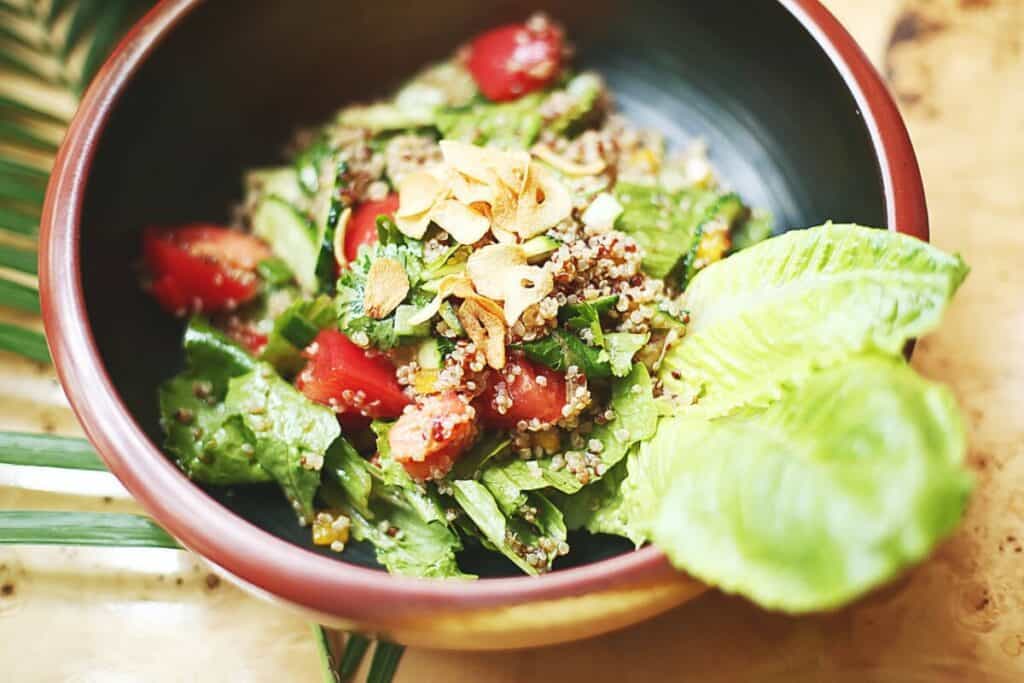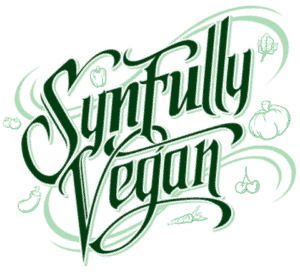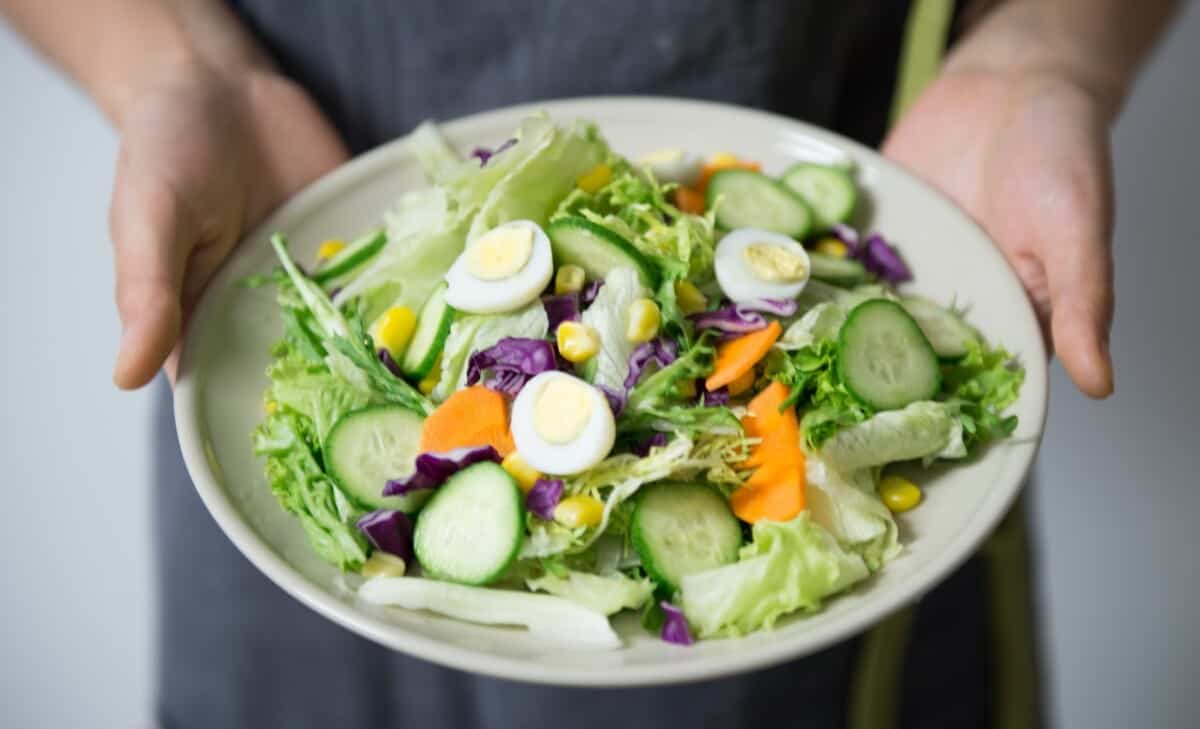There are hundreds of diets popular on the internet. Some of them are fads and some of them are actually sustainable for the long-term. There are some diets, like the keto diet, that are specifically meant for specific medical conditions but people still think of them as general weight-loss diets. There are thousands of articles available online on why you should follow a specific kind of diet.
How to choose the best diet for yourself? The trick is to know everything about these diets, see which diet has pros that outweigh the cons, and follow that diet. If you are planning to follow these diets for a long time, you also need to understand how sustainable it is for the environment.
Here we have compared two diet types, flexitarian, and vegetarian. Your role is to look at their differences, their benefits, and drawbacks, and decide what could possibly be the best for you.
Flexitarian Diet
A flexitarian diet, if defined simply, is just a vegetarian diet with occasional consumption of meat and other animal products that are not allowed in a traditional vegetarian diet. Mostly, the people transitioning towards following a vegetarian or vegan diet follow this diet to make a slow shift in their diets. Some people have also accepted the flexitarian diet as their permanent diet as it allows them to consume meat occasionally but the major portion of their diet comprises vegetarian food products.
There are multiple reasons behind people choosing a flexitarian diet but if we talk about its effect on the environment and on individuals, this type of diet is better as compared to a non-vegetarian diet. One can consume meat occasionally and yet it affects the planet less than a pure non-veg diet does.
A flexitarian diet helps you in many ways. It can help you reduce the amount of saturated fat and cholesterol that you consume. In addition to that, it also helps you increase the portions of vegetables, fruits, and cereals in your diet.

Vegetarian Diet
Vegetarianism is a very broad term as it involves hundreds of dietary patterns and numerous different food groups available across the world. The definition of vegetarianism has also evolved over time. However, there is a difference in every definition popular on the internet. One thing that can define this diet is a restriction on the consumption of meat. No vegetarian diet allows consuming meat as its part.
It is easy to define a vegetarian diet after classifying it into groups/types. There are people who consume milk-based products along with the plant-based products are called lacto-vegetarians. People who consume eggs with a vegetarian diet are called ovo-vegetarians. And the people who consume both milk and eggs are defined as lacto-ovo-vegetarians.
Some vegetarian diet types popular on the internet also suggest seafood consumption but that completely deviates us from the meaning of a vegetarian diet. Yeast based products and other probiotics are included in a vegetarian diet. One can consume curd, buttermilk, yogurt, pickles, kefir, sauerkraut, etc. while being on a vegetarian diet.
Vegetarian diets give us the advantage of consuming foods that are not completely plant-based. The fact that vegetarian diets are less restrictive than vegan diets but more beneficial to the environment and personal health as compared to non-vegetarian diets makes it even more desirable. Following a vegetarian diet is easy even in countries not involved in agriculture. The nutrient availability and abundance of ingredients is one of the most beneficial parts of a vegetarian diet.
Now, a vegetarian diet differs from region to region and from person to person. One cannot directly claim that a vegetarian diet is always a healthy option because the composition of your diet matters equally. You cannot just eat cheese, bread, desserts, fast foods and call it healthy. A vegetarian diet needs to be healthy and balanced in order to be healthy.
Vegetarianism: More Choice
Your reason behind choosing a vegetarian diet can be anything: your love for animals, a distaste for meats, your health consciousness, etc. Whatever the reason might be, a vegetarian diet gives you a wide choice of foods to choose from.
There is no standard category of vegetarianism that you need to fit yourself into. Depending on your short term goals and long term goals, you can decide your own categories of vegetarianism. Remember that your health matters the most, and take your decisions accordingly.
One more factor you need to consider before going vegetarian is your socioeconomic class. Some countries do not have enough agricultural production and hence, plant-based products might be a bit expensive or unavailable in your region. However, know that there is always a cheaper alternative to everything vegetarian.
Western countries prefer eating quinoa their gluten-free staple, whereas India has its very cheap alternative, Amaranth or Rajgira. Just like that, your country or region must have an affordable alternative to everything.
Next thing, looking at the long-term consequences of meat-consumption, shifting to a vegetarian diet is actually a wise move. Meat consumption poses the risk of cardiovascular diseases whereas vegetarian diets are completely free of meat and hence, provide you with a better option.
If you look at the spiritual part of your food, the vegetarian diet is linked with less violence and more positivity. Indian system of Sattivc diet also suggests consuming a vegetarian diet to have the strongest and healthiest mind and body.
Whereas some people might not believe in this fact, but the consumption of meat has shown its effects on mood and behavior. As the old adage goes, we are what we eat. One can benefit from swapping their habits of eating meat with healthy vegetarian food and that itself can bring a lot of changes in your mood, behavior, and health in general.
The best part about lacto-ovo-vegetarianism is that people with deficiencies can also follow such diets without being worried about their health. Eggs and milk are considered whole foods as such and hence one can always rely on such a diet. You can get your proteins, your essential amino acids, vitamins, and calcium, etc, all from consumption of a lacto-ovo-vegetarian diet.
All in all, a vegetarian diet is both healthy and flexible as compared to any other diet.

Essential Differences between Vegetarian and Flexitarian
The only difference between a flexitarian diet and a vegetarian diet is that you are allowed to consume meat occasionally in a flexitarian diet. However, that cannot be considered as a small difference.
Occasional consumption of meat by a large population still counts as a lot on a larger scale. The environmental effects of meat consumption are still the same, just a little less intense. Although you can’t directly go from being a regular consumer of meat to straight-up deleting it from your diet. The faster you make the transition, the better. You need to find a balance between your pace of transition and your cause.
The next thing you should consider is the place where you live. What could be the best possible diet for someone who lives there? What do the local nutritionists suggest? How beneficial is a 100% vegetarian diet to someone living in the same country or region as you?
Ask yourself these questions. E.g. some people in India consume a lot of meat in their daily diets, but looking at the climate in India there is no need of consuming meat so frequently.
Similarly, you can logically think how frequently one should consume meat when living in a country your region like yours.
Vegetarian diets differ in one more aspect from other diets. According to the USDA, most saturated fats are obtained from meat and dairy in your diet. So if you cut off meat, you are already eliminating a source of saturated fat in your diet.
Furthermore, a healthy vegetarian diet (according to the USDA) contains vegetables, fruit, grains, fat-free or low-fat dairy, protein foods, and oils. Now, these food groups are inclusive of all the micro and macro-nutrients needed by a human.
The USDA also recommends cutting down on processed foods as a part of your vegetarian diet. Decreased use of butter, sodium and other preservatives will help you lead a better and healthy life. When it comes to meat, you definitely need a lot of fats and spices for masking the smell and raw taste of meat.
Whereas the vegetables and fruits of a vegetarian diet can be consumed either raw or with minimal cooking and that is yet another beneficial aspect of a vegetarian diet.
Cooking increases the number of glycotoxins in any food. The more you choose natural, minimally processed, and minimally cooked foods, the more you move towards a healthier life. In fact, there are some essential micronutrients in fruits that cannot be supplied even by meat.
In addition to that, fruits and vegetables contain a lot of fiber as compared to meat and that helps you keep your gut healthy. Fibers and resistant starch from the grains and cereals are extremely necessary for a healthy and functional gut.
What To consider before going on either of them?
As mentioned earlier, there as just some things you need to consider before choosing any type of diet for yourself.
- The quality and cost of food available in your region. May it be meat, vegetables, fruits, or anything for that matter. Focus on the quality and the cost. What could be more beneficial to you both, economically and healthwise?
- Next, staying flexitarian forever is a good choice too. But know that if you keep consuming meat on a regular basis, there are chances you might binge on meat products eventually. Some people restrict meat from their diets completely and get even better results than having a small portion of meat every day.
- Do not change your diet pattern suddenly. Take your time and experiment with diets to decide what goes well for you.
- Always know that vegetarianism allows you to consume everything that you need for a healthy body. Deficiency can never be an excuse to not follow a vegetarian diet. If you have deficiencies despite consuming a vegetarian diet, you need to reconsider the type of food you are eating.
Pros of Flexitarian Diet
Following are the advantages of going flexitarian with respect to your diet:
- Inclusion of all the food groups: Unlike vegetarianism or veganism, a flexitarian diet includes all the food groups viz. Cereals, pulses & legumes, Fruits & vegetables, milk and milk products, Meat, Fish & poultry, and fats & oils.
- Flexitarianism helps maintain the levels of omega-3 fatty acids: Omega-3 fatty acids like DHA are specifically found naturally and abundantly in some fishes. As fishes are not excluded from flexitarian diet, the DHA levels in the body remain adequate.
- Increased food choices and flexibility: As all the food groups are included in this diet, you have a vast range of food to choose from. Cooking and choosing food becomes flexible due to this.
- Weight management: A study published in the Journal of the Academy of Nutrition and Dietetics in 2014 had shown that obesity affects non-vegetarians more than semi-vegetarians.
- Diabetes control: Several studies published in popular journals of Nutrition and Dietetics prove that adopting flexitarian diet results in reducing blood sugar levels and some of them have also proved that it reduces insulin resistance in the body to a certain extent.
- Less risk of CVD: As a flexitarian diet maintains the levels of omega-3 fatty acids in the body and helps to manage weight, it lowers the risk of CVDs.
- Environment friendly: As flexitarianism is about eating less meat and not restricting meat, it saves many animals and also results in decreased carbon emission in the environment as compared to a vegetarian diet.
- Cost-effective: Following a flexitarian diet never results in empty pockets. As you have a choice of all the food groups, you can always consume local and cost-effective ingredients.
Cons of Flexitarian Diet
No diet is perfect and the same is the case with a flexitarian diet. Following is the list of disadvantages that you may face while the following flexitarianism:
- Risk of low iron intake: As the best form of iron that the body absorbs maximum is present in non-vegetarian sources, restricting meat and fish can reduce the overall iron intake. It is advisable to increase the intake of iron-rich vegetarian sources to avoid iron deficiencies.
- Low intake of B12: There is a scarcity of vitamin B12 in vegetarian foods. Restricting animal meals and eating incorrectly can lead to vitamin B12 deficiency. Instead, people should consume enough sources of vitamin B12 when they choose to consume a flexitarian diet.
- Tough task for regular meat-eaters: Regular meat-eaters may initially face a lot of problems while restricting meat. Also, there are no specific groups of nutrition professionals who can guide people for this transformation. Forceful restriction of meat may sometimes create negative friction in the brain and this can lead to a bad mood. Thus, it is always advisable to restrict meat gradually.
- Unhealthy food choices: As meat-eaters are fond of meat in the majority of the dishes, they find vegetarian alternatives that resemble meat in their dishes. People often make unhealthy, high-carb, and high-fat choices in such scenarios. To overcome this, you should always seek advice from nutrition professionals for making better food choices.
Pros of a Vegetarian Diet
The pros of following a vegetarian pattern of diet are as follows:
- Weight management: Vegetarian diet includes foods that are rich in fibers. This results in early satiety which in turn leads to lower intake of overall calories consumed throughout the day. This results in better weight management. Research conducted to date has also shown that vegetarians have a comparatively lower BMI than non-vegetarians.
- Reduced risk of CVD: As vegetarian diets consist of antioxidants and anti-inflammatory agents, vegetarians tend to have a lower risk of getting CVDs and heart strokes, only if they follow healthy eating patterns.
- Decreases risk of cancers: Research has shown that a vegetarian diet decreases the risk of many types of cancers.This is because vegetarian food products produce less oxidative stress in the body and strengthen the immune system of humans. This helps in fighting many types of cancers.
- Lesser intake of harmful animal hormones: Animals are injected with many hormones that are similar to human hormones in order to increase the yield of animal products. These hormones, when entered the human body, may cause certain hormonal and metabolism imbalances. But vegetarian food products have the least entry of such hormones in the human body.
- Many animal lives are saved: The cruelty that animals face in their entire life till they are slaughtered comes to zero if you follow vegetarianism.

Cons of a Vegetarian Diet
A vegetarian diet has its own drawbacks that you need to know before going for it. Here is the list for the same:
- Risk of iron deficiency: The iron present in vegetarian foods is not easily absorbable by the human body. Exclusion of animal sources of iron may result in the depletion of iron stores of the body.
- Risk of vitamin B12 deficiency: Vitamin B12 is present in lesser amounts in vegetarian food products. There are many cases of vitamin B12 deficiency among vegetarians. This leads to low energy levels in the body and affects the quality of life.
- Risk of vitamin D and calcium deficiency: Although eggs are a source of vitamin D, vegetarians do not get enough vitamin D through diet. This leads to vitamin D deficiency that further results in low levels of calcium in the body. This also leads to high instances of osteoporosis in women in the post-menopausal stage.
- Lower intake of protein: Vegetarian sources of food generally do not contain protein as high as animal meats. This can lead to less protein intake which in turn affects the energy levels, immunity, and overall physical health of vegetarians.
Conclusion
We provided you with a clear idea of the differences, similarities, benefits, and drawbacks of a vegetarian diet and a flexitarian diet. The decision is yours to make. Considering the point we mentioned, it might be clear to you that the myths related to the deficient nature of a vegetarian diet in temr son nutrition is a completely baseless argument, and there is no problem in consuming a vegetarian diet even if your day is full of heavy physical activity.
You just need to consider your health and the effect of your diet on the environment and make the choice accordingly. Remember, our taste and luxury do matter, but the environment and its sustainability matters equally and that a diet balanced by all means will take us one step closer to a better and healthier world.


